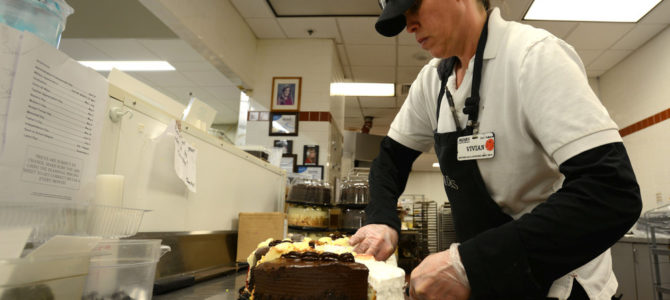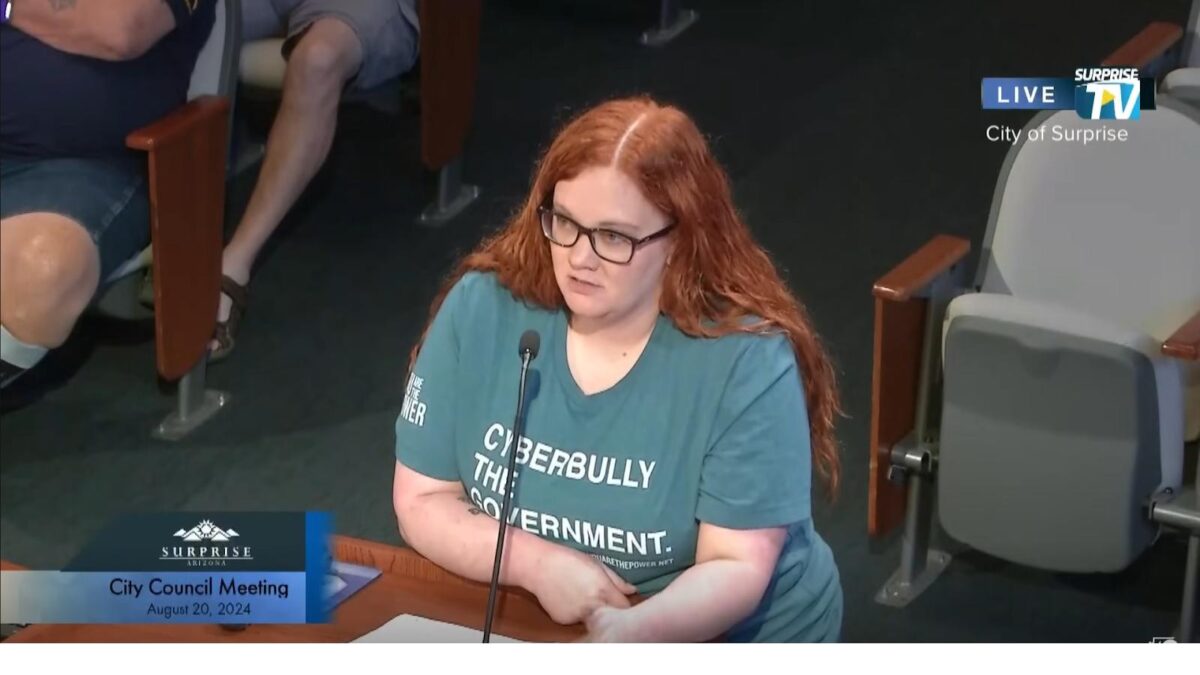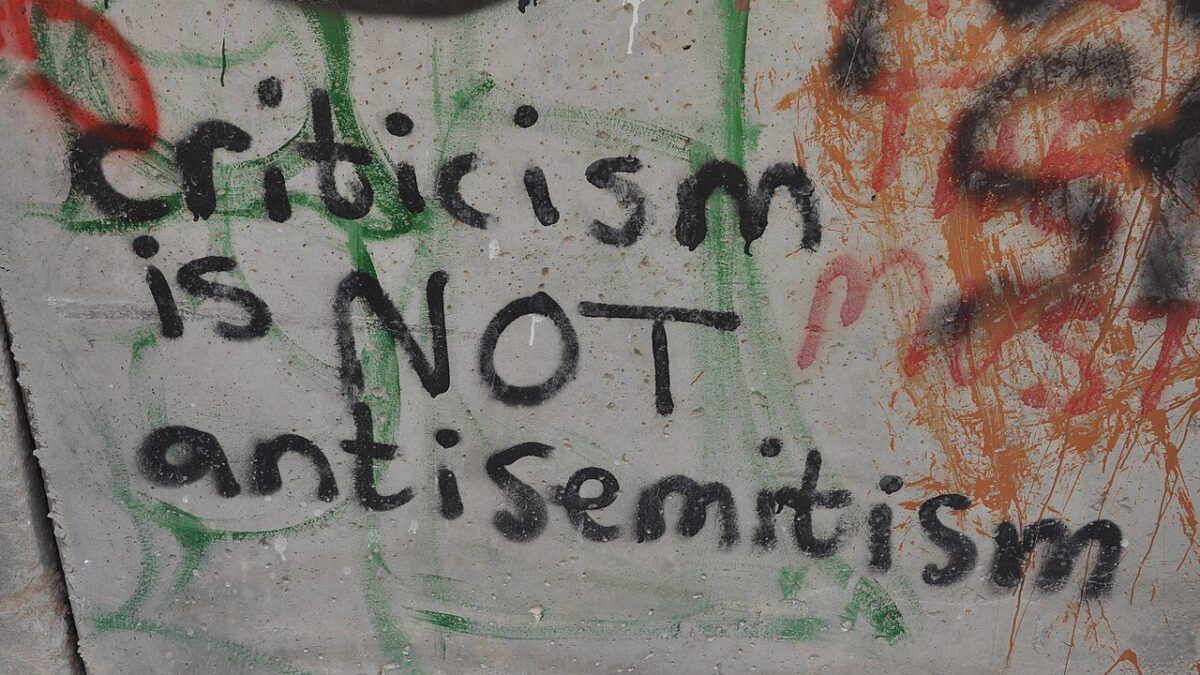
Christians have a PR problem. The media persistently report that Christian small business owners want to discriminate against homosexuals. That was in fact the key argument those prosecuting a Christian baker made to the Supreme Court this week in their case against him for choosing to not bake a cake to help celebrate a gay wedding ceremony.
Political debate is regularly framed in the same terms: Does religious freedom include the right to discriminate against gays and lesbians? The problem is that this presentation involves a truly massive distortion of the actual question at issue.
The story is all too familiar. A Christian baker, or florist, or photographer has been serving a homosexual customer for years. The customer then asks the professional to participate in the customer’s wedding to a same-sex partner, and the artist declines for reasons of conscience. Cue a lawsuit for discrimination on the basis of sexual orientation.
We’re Constantly Fed This Frame of the Story
The perception that such professionals are engaged in sexual orientation discrimination is widespread. That perception is unsurprising, given that researchers, judges, and the media consistently frame the question in those terms.
For example, the Public Religion Research Institute released a survey this summer on Americans’ attitudes toward what it describes as “allowing small business owners to refuse to provide products or services to gay or lesbian people, if doing so would violate their religious beliefs.” PRRI’s language actively feeds the perception that the key question is whether religious liberty allows one “to refuse to provide products or services to gay or lesbian people.”
Unsurprisingly, most Americans react negatively to that perception. It is distasteful to morally healthy people that a person might be denied service by a business simply because of his or her sexual orientation, and it should be. According to the PRRI survey, most Christians agree not only that such discrimination is wrong, but also that it is a serious enough wrong to merit government interference.
What may surprise many, however, is that the Christian small business owners involved in these lawsuits have no desire to discriminate on the basis of sexual orientation, nor do they ask for the right to do so. To frame the question in terms of a right to discriminate against gays and lesbians is to manipulate public opinion by playing a game of make-believe. It is to present Christians as making an unreasonable demand instead of the reasonable one that they actually make.
We’re Totally Missing the Point
At the heart of the confusion is the subtle yet crucial distinction between persons and actions. Discrimination on the basis of sexual orientation is directed against a person. A person’s physical and spiritual nature is such that he or she experiences certain desires. All sides agree that discrimination based on who a person is would be wrong.
What some Christian small business owners object to is participation in actions that they believe to be wrong. Most religiously conservative Christians believe it is wrong to engage in sexual activity outside a one-man-one-woman marriage. For that reason, they believe homosexual marriage ceremonies (as well as, say, heterosexual polygamous ones) celebrate an action that is wrong.
For that reason, they believe it would be wrong to participate in such ceremonies themselves. They are happy to serve homosexuals. They have no interest whatsoever in discriminating against persons. But they also wish to obey their consciences, and this means they may not participate in homosexual wedding ceremonies.
The Masterpiece Cakeshop case provides a good example. Owner Jack Phillips stressed that his company did not and would not refuse service on account of their sexual orientation to the homosexual couple involved. In fact, he had explicitly offered to serve them in any way that he could. Participation in a homosexual wedding ceremony, which Phillips understands to be wrong, was the only service he could not in conscience provide.
Masterpiece “argues that it did not object to or refuse to serve patrons because of their sexual orientation, and that it assured Craig and Mullins that it would design and create any other bakery product for them, just not a wedding cake” (emphasis added). Phillips made clear that his only objection was to participating in conduct that he believed to be wrong. His “decision was solely ‘because of’ Craig’s and Mullin’s intended conduct—entering into marriage with a same-sex partner—and the celebratory message about same-sex marriage that baking a wedding cake would convey.”
To accuse these conscientious objectors of discrimination on the basis of sexual orientation completely misses the point. The charge is simply false. They are perfectly happy to serve heterosexual and homosexual customers alike. All that they ask is to be allowed to obey their consciences and not be forced to participate personally in actions that they believe are wrong.
What Was That About ‘Not Legislating Morality’
One need not agree with such conscientious objectors to respect their right to obey their consciences. One need only believe that conscience is a precious thing, and so is liberty. Neither should be violated without very good reason.
Only a moral monster tries to force others to violate their consciences unnecessarily. I believe that the message “Allah is a false god” is true, and even of vital importance, but I would not try to force a Muslim company to make a T-shirt displaying that message. Life in a diverse society requires that citizens learn to respect each other despite their differences of opinion, not seek to destroy those who differ from themselves.
For all their talk about tolerance and pluralism, so-called gay rights activists are demonstrating a frighteningly authoritarian desire to force their moral code that homosexual behavior is acceptable on those who disagree. The freedom to believe what you believe is meaningless if the state claims the right to force you to act as though you didn’t believe it. Freedom of speech and of religion are endangered by this new crusade to make everyone mouth PC dogma or be destroyed by lawsuit and the violence of the state. A distorted presentation of the issue as if it had anything in the world to do with discrimination against homosexuals is a tool to legitimize that crusade.
The Conscientious Objectors Just Want to Live and Let Live
There is no conflict of rights here. It would be absurd to pretend that in the United States today there is a serious danger that homosexual couples will not be able to find suppliers happy to participate in their ceremonies. The conscientious objectors are not asking to interfere in the lives of their homosexual neighbors, only to abstain from participating in those particular actions that they understand to be wrong.
A little mutual understanding would entirely resolve this issue. The conscientious objectors are already doing their part by disavowing any interest in sexual orientation discrimination. In turn, they have a right that their consciences be respected, that they be allowed freedom of speech and religion, and that they not be forced to participate in celebrating behavior they believe to be wrong. They also have a right that their stand for conscience not be misrepresented as a stand in favor of discrimination.
This problem will disappear overnight as soon as “tolerance” becomes more than a hypocritical slogan.









